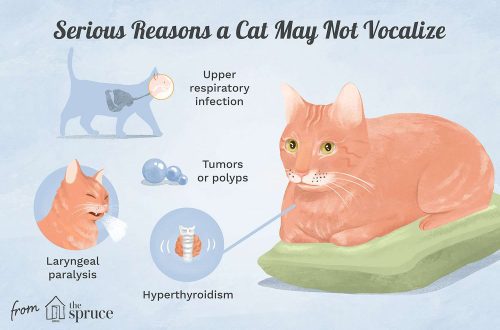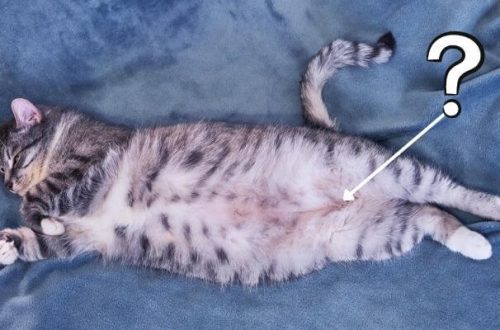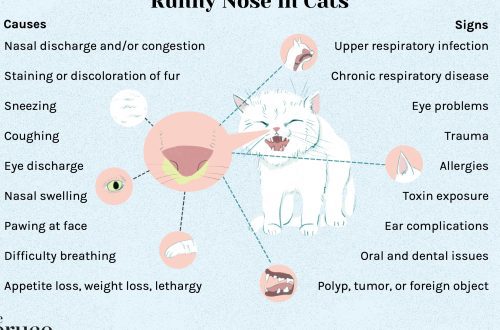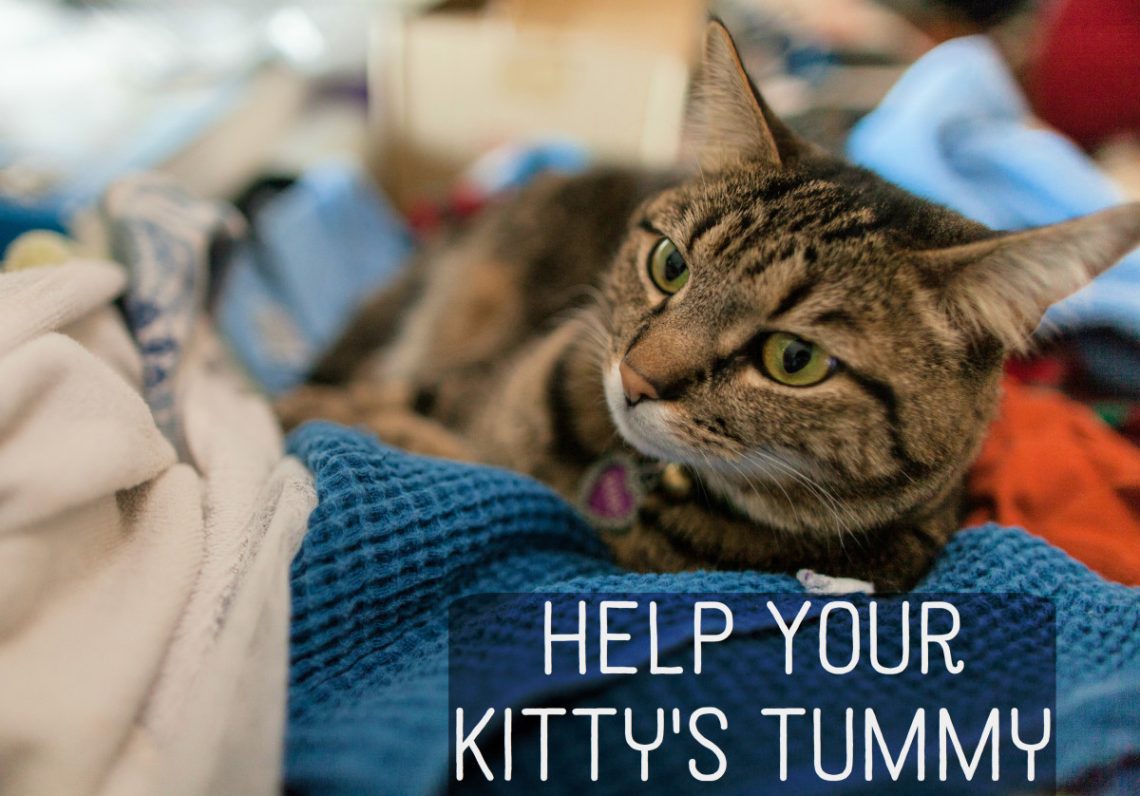
The cat seethes in the stomach – why and what to do?
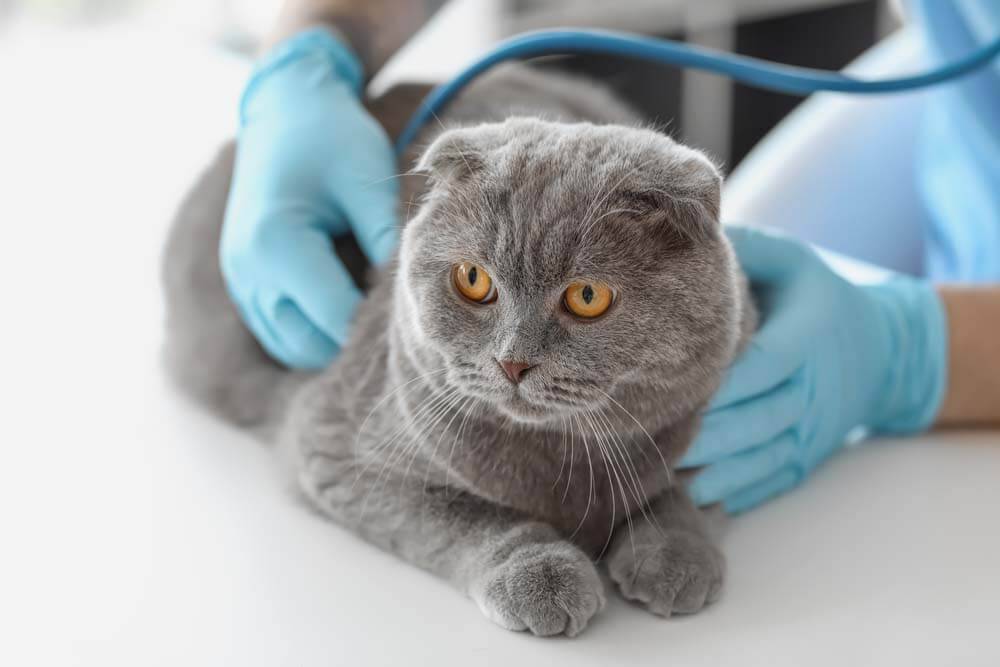
Contents
6 reasons why a cat’s stomach growls
Hunger in an animal
During a long absence of a food coma in the stomach and intestines, the organs begin to make demanding sounds: the cat begins to rumble in the stomach. It’s simple – after feeding the situation returns to normal.
Irregular feeding
Simply put, overeating after a long hunger. During the period of a sharp intake of food into the body of a pet, the gastrointestinal tract activates its work, releasing an abundant amount of enzymes and juice. If a cat rumbles in the stomach in the process of digesting food, this is a normal physiological process.
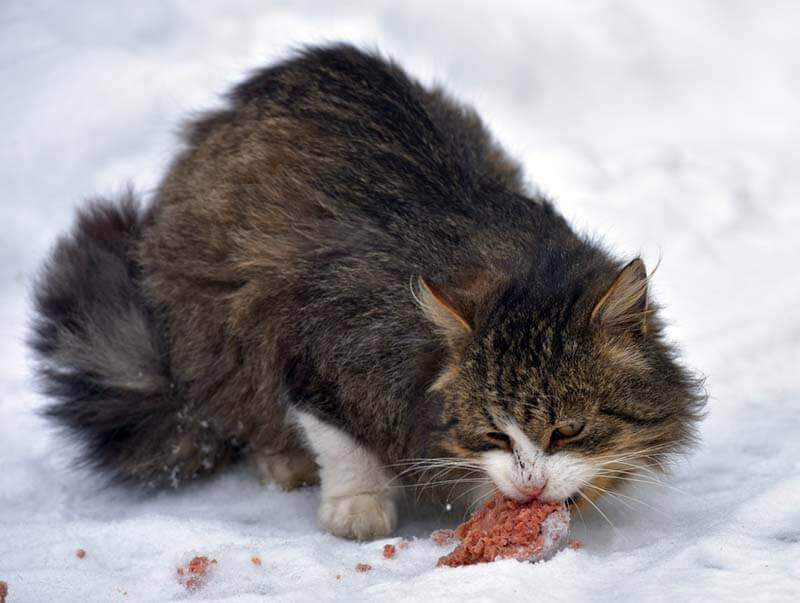
Aerophagia
This is the act of absorbing air with food, which in turn is excreted by the intestines. The process is accompanied by the sounds of seething. Aerophagia can be associated with both active eating, which is normal, and with a violation of the respiratory system.
Helminthic invasion
Intestinal parasites can injure the intestinal walls, produce toxins, release metabolic products into the intestinal lumen, thereby provoking active gas formation: the cat’s stomach boils and swells.
Thirst
A large amount of water that enters the intestines can, by activating its work, provoke seething. Cold water irritates the intestinal walls more than warm water, so the seething will be louder and more active.
Bloating
Flatulence can manifest itself in a cat against the background of eating low-quality or inappropriate food. In this case, seething in the abdomen can be accompanied by pain, diarrhea and even vomiting. Here it is already necessary to understand the true reason for what is happening and help the pet.
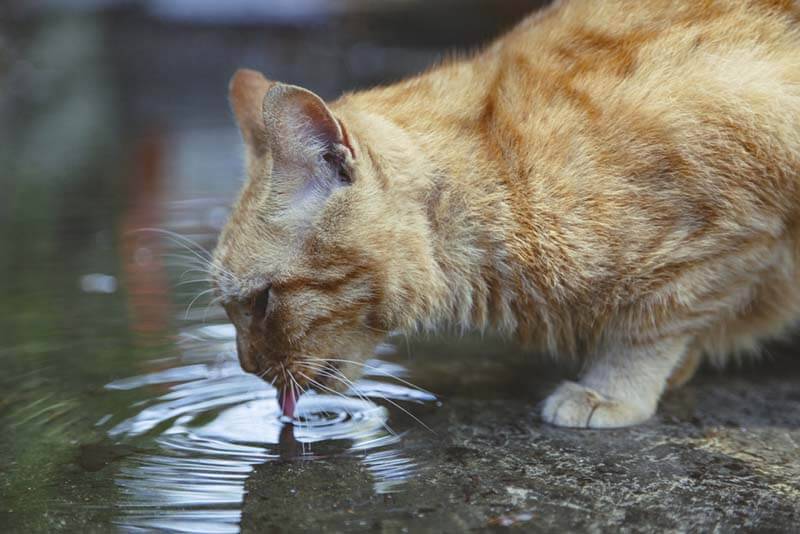
What to do if the cat’s stomach growls?
Hunger, irregular feeding and thirst
Regulate the frequency of feeding: for an adult animal, 2-3 uniform meals are enough
Determine the required volumes for feeding: the amount of natural or commercial feed per day, divide it into equal portions
Eliminate spoilage of food in the bowl: food should not be in the bowl for more than 30-40 minutes
Determine the quality and suitable food for the pet, for example, for health reasons
Provide constant access to clean and fresh water at room temperature.
If the cat is seething in the stomach, but the stool and appetite are normal, then we can exclude these causes.
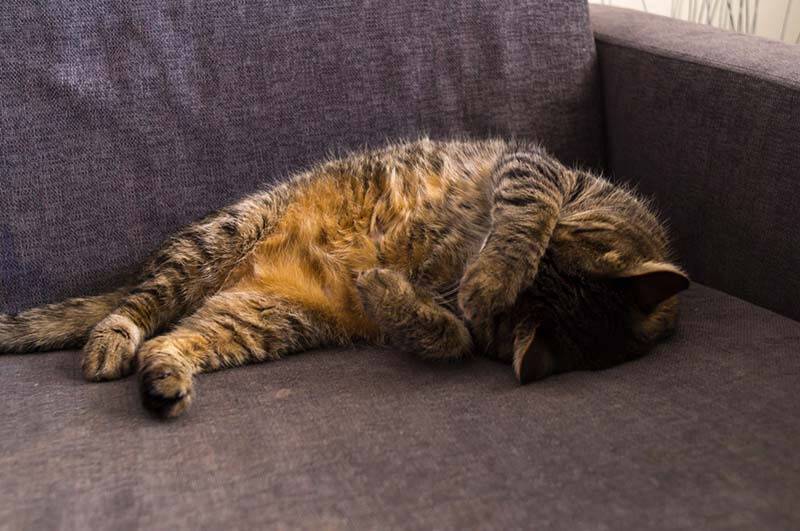
Aerophagia. Before assuming greedy eating of food with portions of air, it is necessary to exclude the presence of pathologies associated with the respiratory system. If there is leakage from the eyes, nose, cough, wheezing, cyanotic mucous membranes of the oral cavity, you should immediately consult a doctor. Necessary diagnostics in this situation:
General clinical blood test
X-ray or CT scan of the chest
PCR, ELISA, ICA tests for viral infections of cats
Rhinoscopy and flushing from the nose with its study
In severe cases of damage to the lower respiratory tract, it may be necessary to flush from the bronchial tree with its subsequent study.
Ultrasound of the heart.
Treatment will directly depend on the diagnosis made to the pet. The main therapy will be an intensive supply of oxygen in order to compensate for its lack in the body during the period of oxygen starvation and unproductive breathing of the animal.
Additionally, auxiliary therapy can be prescribed in the form of: carminative therapy (Bubotic, Espumizan), painkillers (Miramizol, No-shpa, Papaverine Hydrochloride, Trimedat), diet correction (feeding frequency, diet composition), exercise and walking.
If there are no secondary changes in the pet, you should pay attention to the duration of the fasting period or the level of the pet’s bowl.
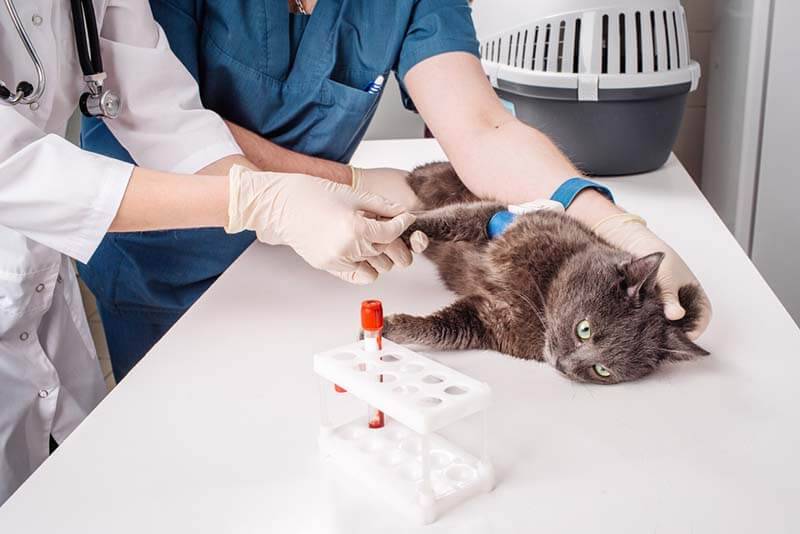
Helminthic invasion. The presence of bone parasites in a pet can be eliminated by correct regular treatment with oral preparations according to the weight and health of the animal. Drugs of choice: Milprazon, Milbemax, Helmimax, Drontal, Kanikvantel, Cestal. At the time of treatment, the pet must be clinically healthy, active and have a good appetite. Otherwise, the treatment should be carried out under the supervision of a physician. An alternative to preventive treatments is a long-term diagnosis of feces for the presence of parasite larvae in it. However, this research method cannot be considered reliable.
If flatulence in a pet is accompanied in parallel by secondary changes in the form of problems with appetite, vomiting, the presence of blood or mucus in the feces, constipation, or, conversely, diarrhea, the pet needs to undergo a comprehensive examination:
Fasting blood tests – general clinical and biochemical blood tests, electrolytes
Abdominal ultrasound
Biopsy of the neoplasm, if any
Endoscopic examination of the lumen of the gastrointestinal tract
Hormonal blood tests.
As a therapy, the pet in this situation may begin to administer saline solutions, painkillers and carminative drugs in order to reduce the amount of gases that stretch the intestinal loops, thereby causing a situation where the cat gurgles in the stomach.
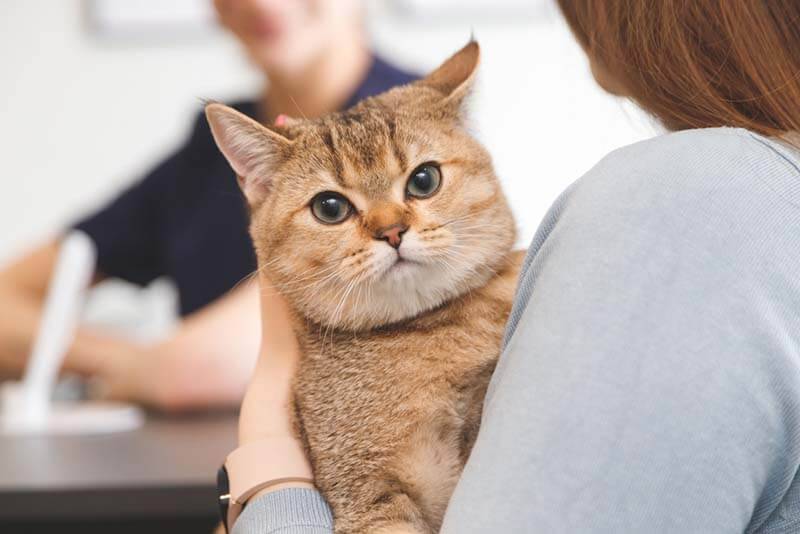
If the kitten’s stomach rumbles
For babies, normal physiological processes are also characteristic, as for an adult animal. The kitten gurgles in the stomach against the background of hunger, during active digestion of food, or when bloated against the background of inappropriate food intake, helminthic invasion or thirst.
Given the size of the body, rumbling can be heard louder than in a large animal. In case of swelling, it is important to provide the kitten with timely assistance and give carminative drugs as indirect pain relief – for example, humanitarian drugs Bubotik or Espumizan Baby.
Prevention
As a preventive measure for diseases of the gastrointestinal tract, it is important to provide the pet with high-quality feeding and maintenance conditions:
Timely treatments against helminths and external parasites.
Regular and even meals throughout the day and the constant availability of clean and fresh water.
Exclude low-quality or hard-to-digest foods from the diet – for example, milk, which adult cats, due to the lack of appropriate enzymes, cannot digest.
A natural diet is possible, but only after consultation and calculation by a veterinary nutritionist.
Regular examination and preventive examination in a veterinary center at least once a year.
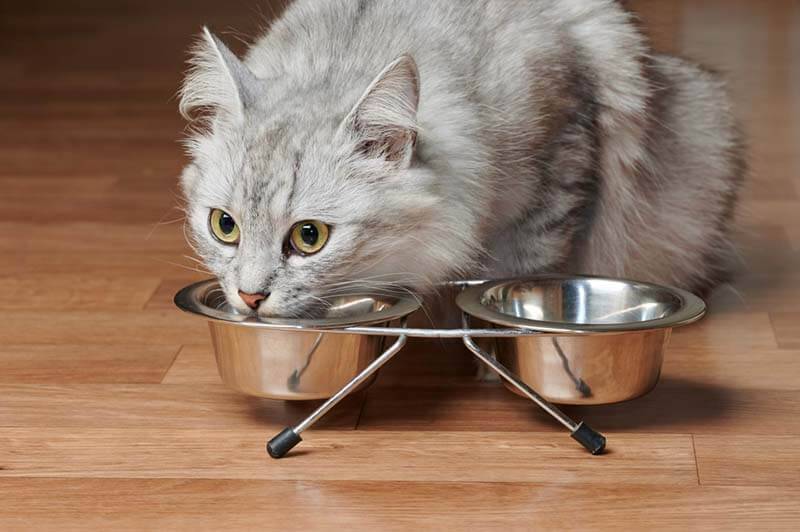
Home
There are a number of possible reasons why a cat’s stomach growls: hunger, thirst, irregular feeding, poor-quality or inappropriate foods, air swallowing, helminthic invasion, or bloating due to the development of secondary disorders or poisoning.
If a cat rumbles in the stomach, this may be due not only to physiological processes, but also to pathology – that is, a disease. For example, aerophagia due to problems with the respiratory system, helminthic invasion, food intolerance, poisoning. In such a situation, rumbling in the abdomen will be accompanied by additional symptoms in the cat.
Treatment of a cat whose stomach is growling will directly depend on the cause of such manifestations, and, as a rule, will include carminatives (Espumizan Baby, Bubotik), correction of living conditions (feeding frequency, exercise, quality and composition of the diet), oxygen therapy , painkillers (Miramizol, Trimedat, Papaverine Hydrochloride, No-shpa), deworming (Milprazon, Milbemax, Helmimax, Drontal, Kanikvantel).
Seething in the abdomen of a kitten can be observed for the same reasons as in an adult cat. This condition differs only in the intensity of what is happening and the speed of development of possible diseases. It is important to help the kitten as soon as possible, without waiting for the deterioration of his condition.
Prevention of rumbling in the stomach of a cat is also important and consists in high-quality and regular nutrition, constant treatments and preventive examinations of the animal throughout its life.
Sources:
Eirmann L, Michel KE. Enteral nutrition. In: Small animal critical care medicine, 2nd ed. Silverstein DC, Hopper K, eds. St. Louis: Elsevier Saunders 2015:681-686.
Dörfelt R. A quick guide to feeding hospitalized cats. Vet Focus 2016; 26(2): 46-48.
Rijsman LH, Monkelbaan JF, Kusters JG. Clinical consequences of PCR based diagnosis of intestinal parasitic infections. J Gastroenterol Hepatol 2016; doi: 10.1111/jgh.13412 [Epub ahead of print].
Gastroenterology of dogs and cats, E. Hall, J. Simpson, D. Williams.



